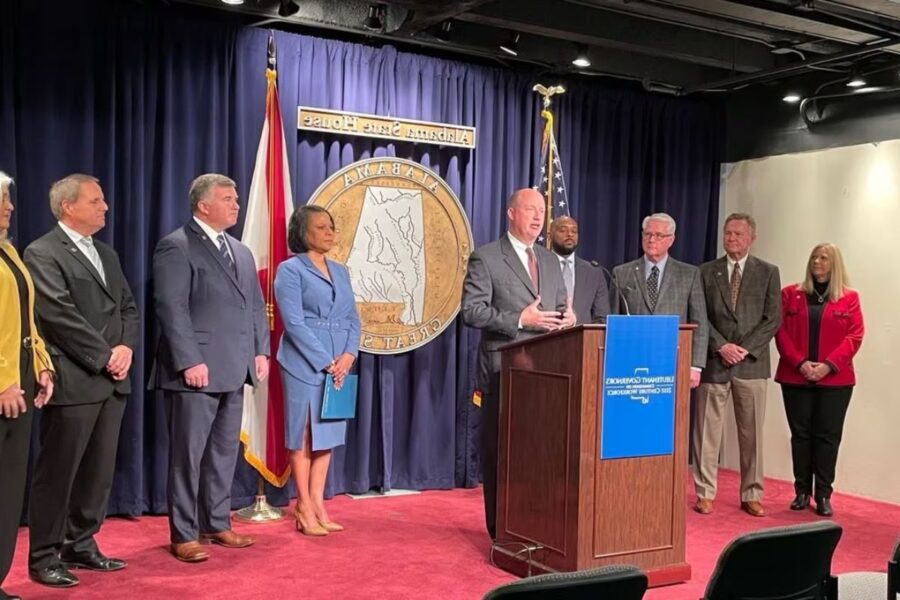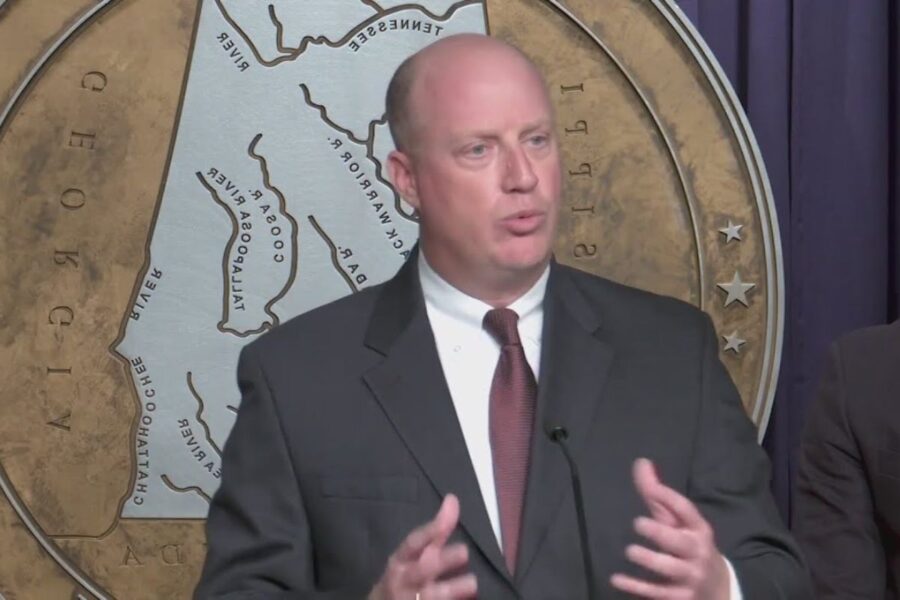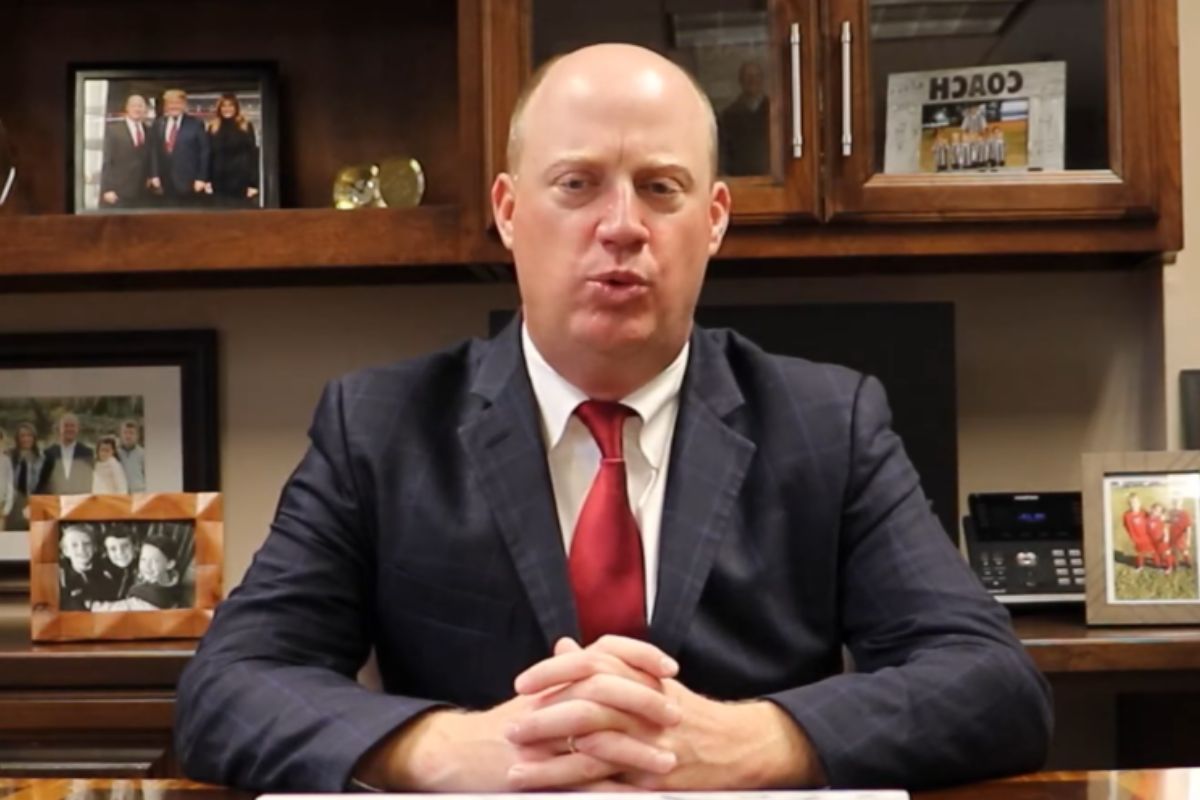Ainsworth Workforce Commission: The Ainsworth Workforce Commission has presented an opportunity for transformative change in Alabama. With bipartisan support and a focus on practical problem-solving, the commission’s recommendations aim to enhance the state’s workforce.
By aligning these recommendations with core principles of effective governance, Alabama lawmakers are anticipating implementation challenges while advocating for public engagement.
The potential impact of the Ainsworth Workforce Commission on shaping the future of Alabama’s workforce.
Key Takeaways
- Alabama lawmakers have unveiled 11 transformative workforce recommendations, including the introduction of child care tax credits for working parents and streamlining governmental agencies for improved efficiency.
- There is bipartisan support for these proposals, with lawmakers from both sides of the political spectrum recognizing the importance of investing in Alabama’s workforce.
- This commitment to working together sets a positive example of collaboration and cooperation for other states.
- The focus is on practical problem-solving and addressing genuine challenges faced by the public, such as aiding working families with childcare and guiding individuals into trade programs for skill development.
Alabama Lawmakers Unveil Transformative Workforce Recommendations
Alabama lawmakers have unveiled 11 transformative workforce recommendations aimed at bolstering the state’s workforce and improving the lives of its workers.
These proposals, put forward by the Lt. Governor’s Commission on 21st Century Workforce, address various aspects of workforce development and support.
One of the key recommendations is the introduction of child care tax credits, which would provide financial assistance to working parents in need of affordable and reliable child care options.
Additionally, the recommendations highlight the need for streamlining governmental agencies to improve efficiency and effectiveness in delivering services to the workforce.
The proposals also emphasize the importance of public-private partnerships in fostering economic growth and job creation.
Furthermore, there is a focus on reinvesting in career tech centers to provide workers with the necessary skills for high-demand industries.
These recommendations demonstrate Alabama lawmakers’ commitment to creating an environment that supports a thriving workforce and enhances the quality of life for its workers.

READ MORE: Lt. Gov. Ainsworth Plan New Workforce Development for Alabama
Bipartisan Support Surfaces for Workforce Enhancement Proposals
The bipartisan support for the workforce enhancement proposals put forward by the Lt. Governor’s Commission on 21st Century Workforce demonstrates a shared recognition of the importance of investing in Alabama’s workforce and the potential for positive change. Lawmakers from both sides of the political spectrum have shown their approval for these proposals, highlighting a rare consensus on the need to prioritize the development of Alabama’s workforce.
This bipartisan support is significant for several reasons:
- It reflects a commitment to putting aside political differences and working together for the betterment of the state.
- It indicates a recognition of the urgent need to address workforce challenges in Alabama and find effective solutions.
- It sets a positive example of collaboration and cooperation for other states facing similar workforce issues.
With this bipartisan backing, the workforce enhancement proposals have a greater chance of being implemented successfully and bringing about the desired positive changes in Alabama’s workforce.
A Departure from Political Rhetoric to Practical Problem-Solving
With bipartisan support for workforce enhancement proposals, there is now an opportunity to shift away from political rhetoric towards practical problem-solving in addressing Alabama’s workforce challenges. This departure from the typical trend of manufacturing or exaggerating issues for political gain could bring about real change for the state.
By focusing on pragmatic solutions, such as aiding working families with childcare or guiding individuals into trade programs, elected officials can make a tangible impact on the lives of Alabamians. This shift towards practical problem-solving is crucial for the future of Alabama’s workforce.
It signifies a commitment to addressing the genuine challenges faced by the public and finding effective solutions that will lead to a more prosperous and fulfilling life for individuals in the state.
Aligning Recommendations with Core Principles of Effective Governance
By aligning these recommendations with the core principles of effective governance, we can ensure that the proposed solutions address the genuine needs of the people and lead to meaningful change in Alabama’s workforce.
To achieve this alignment, it is essential to consider the following:
- Transparency and Accountability: The recommendations should be transparent in their goals, processes, and outcomes. Clear metrics should be established to measure progress and hold accountable those responsible for implementing them.
- Inclusivity and Collaboration: The recommendations should involve input from a diverse range of stakeholders, including employers, workers, educators, and community leaders. Collaboration among these groups will ensure that the solutions are comprehensive and consider the unique challenges faced by different sectors of the workforce.
- Long-term Sustainability: The recommendations should prioritize long-term sustainability by focusing on initiatives that promote economic growth, job creation, and skill development. This approach will not only address the current needs of the workforce but also lay the foundation for future prosperity.

Anticipating Implementation Challenges and Advocating for Public Engagement
To effectively address the challenges of implementing the proposed recommendations, it is crucial to anticipate potential obstacles and actively engage the public in the process. This ensures that the ideas put forth by Ainsworth’s Workforce Commission have a better chance of becoming tangible improvements for Alabama. However, implementing these recommendations may not be without its challenges.
Legislators may resist change due to various reasons, such as political differences or concerns about the impact on the state’s budget. Therefore, it is important to anticipate and address these potential obstacles proactively. Additionally, advocating for public engagement is vital in garnering support for these changes. Engaging the public allows for a more inclusive decision-making process and ensures that the proposed recommendations align with the needs and desires of the citizens. By actively involving the public, their voices can be heard, leading to a more democratic and effective governance.
| Implementation Challenges | Advocating for Public Engagement |
|---|---|
| Resistance from legislators | Inclusive decision-making process |
| Concerns about impact on budget | Aligning recommendations with citizens’ needs |
| Political differences | Ensuring citizens’ voices are heard |
| Lack of awareness or understanding of proposed changes | Promoting democratic governance |
| Potential pushback from interest groups or stakeholders | Encouraging public support for recommendations |
Conclusion Of Ainsworth Workforce Commission
Alabama lawmakers have unveiled transformative workforce recommendations that have garnered bipartisan support. This departure from political rhetoric to practical problem-solving aligns with the core principles of effective governance.
However, the implementation of these recommendations may pose challenges, and it is crucial to advocate for public engagement throughout the process.
Overall, these workforce enhancement proposals present a chance to change Alabama’s workforce for the better.
Our Reader’s Queries
What is Alabama workforce development?
The Workforce Development Division is committed to enhancing Alabama’s public workforce system. Its focus is on facilitating the placement of Alabamians into high-quality jobs and careers while assisting employers in recruiting and retaining skilled workers essential for sustaining and expanding their operations.

